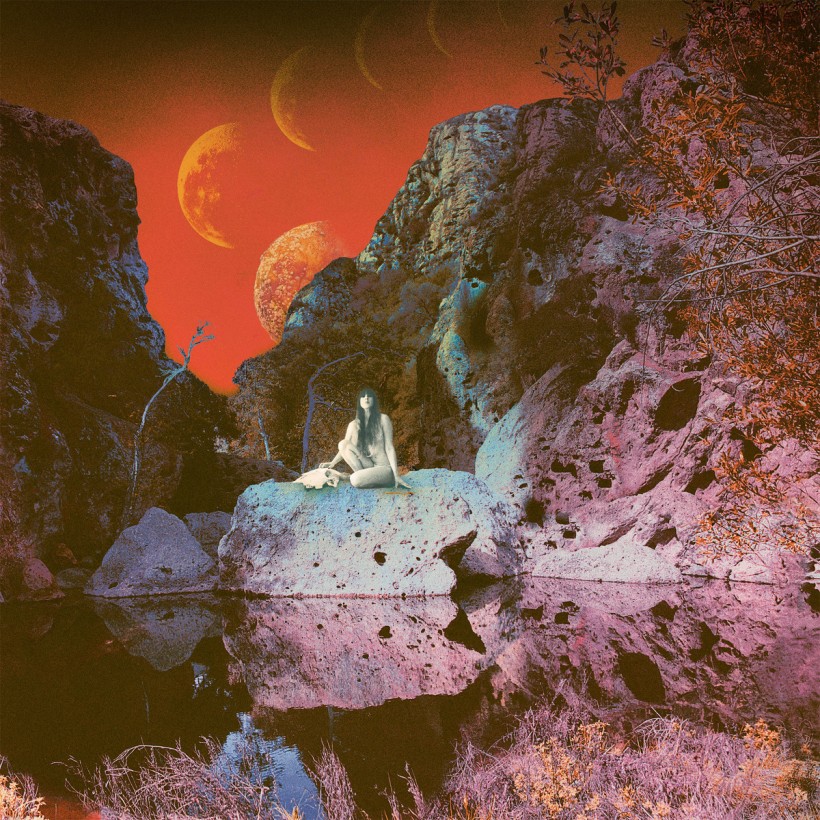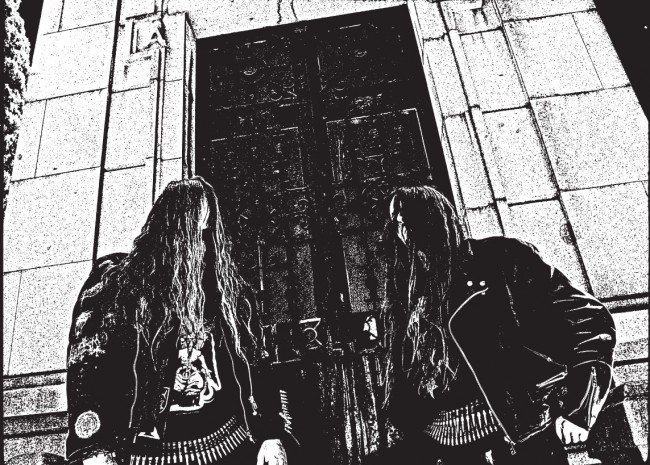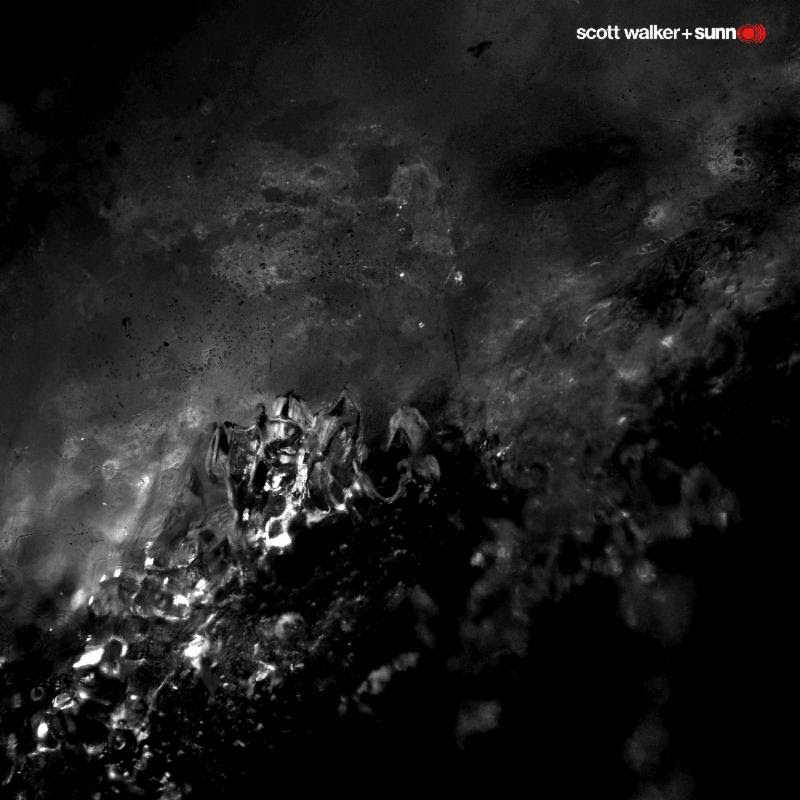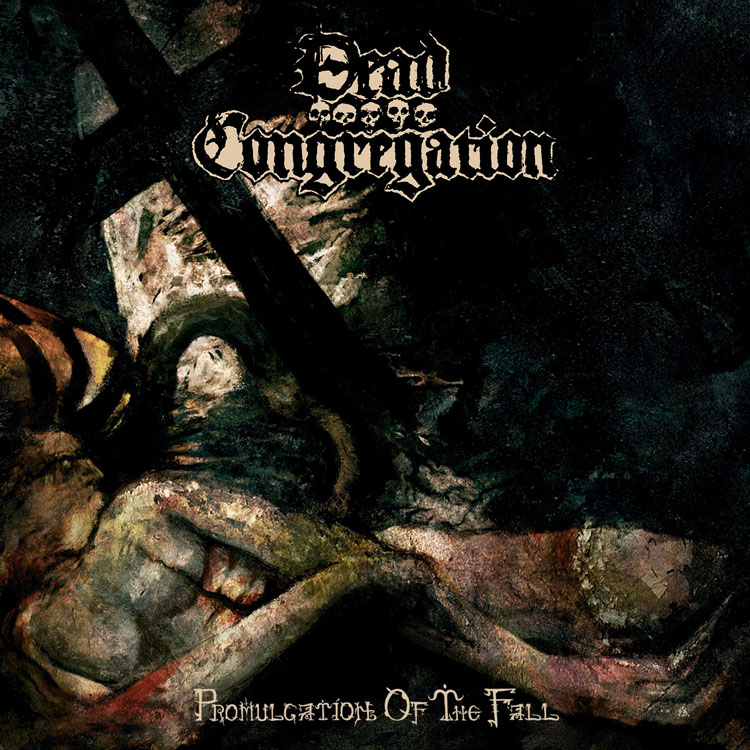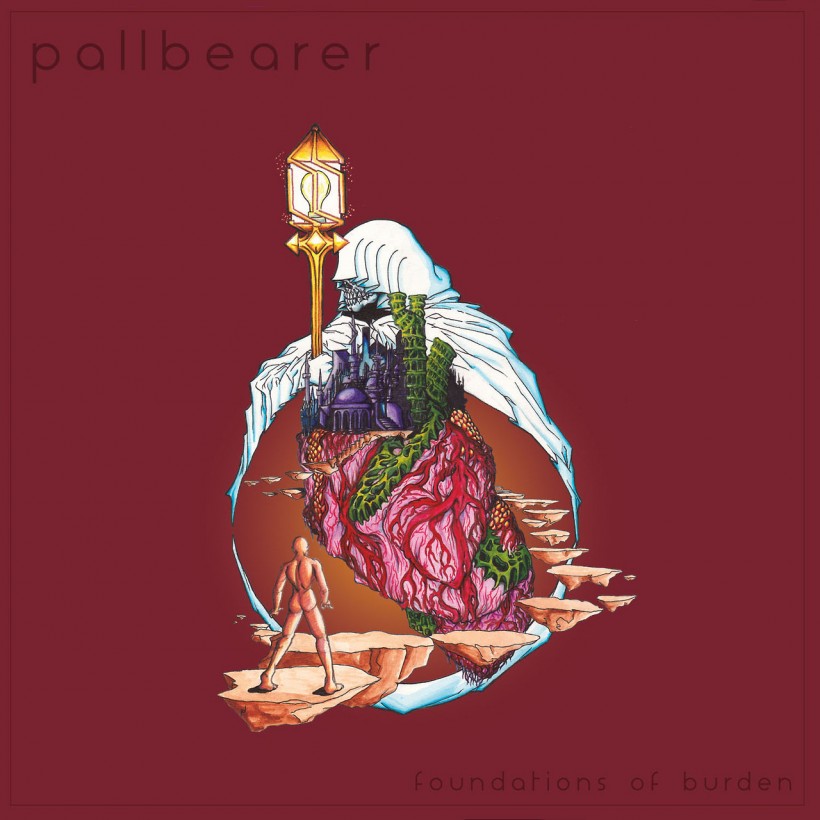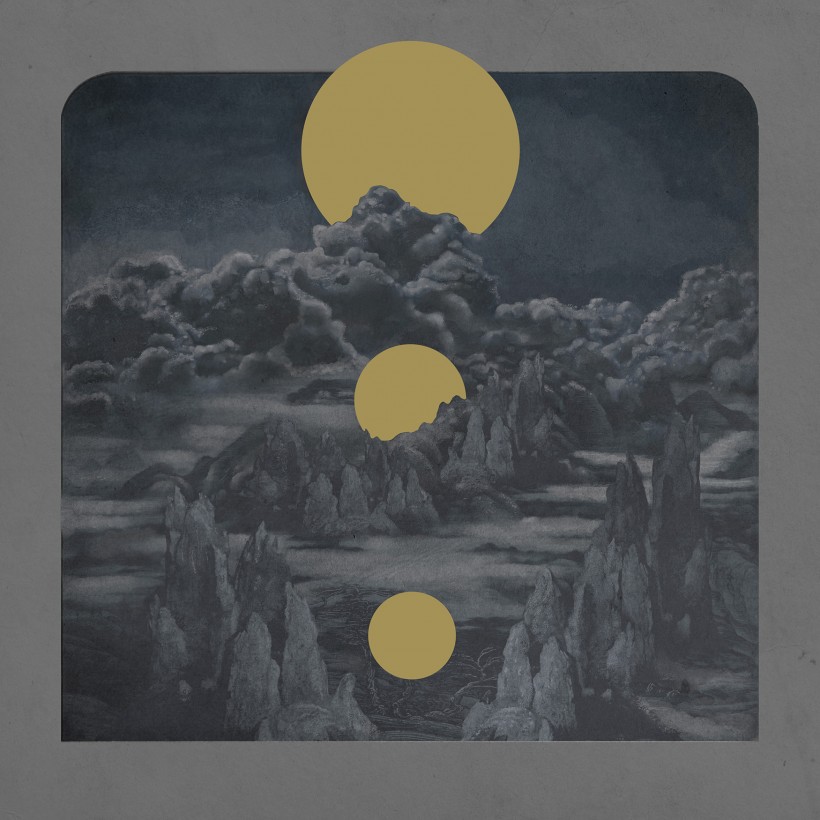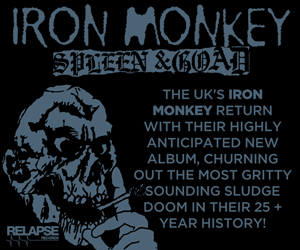This has been an amazing, exhausting year for us, and first of all we’d like to sincerely thank all of our readers for the love and support! We are so passionate about CVLT Nation and you make it possible for us to keep this site going. Now, wipe the tears from your misty eyes. Your picks were all over the map this year, which is cool because it shows how varied our readership is. But there were some clear frontrunners, so this list represents the most frequently chosen releases of the year. Clearly, our readers love DOOM! See you in 2015!!
TEN: PANOPTICON – ROADS TO THE NORTH
There’s plenty of heavy, hard-charging intensity in this album, but even at it most electrifying the mood is generally one of pulse-pounding exuberance, more joyful and liberated than raging. There are more than a few passages when the music even becomes sweepingly panoramic. And although the scathing musical motifs of Nordic black metal have been important features of previous Panopticon albums, they’re minor players in Roads To the North, which has as at least as much in common with Scandinavian melodic death metal and post-metal.
The roar of a cold wind, the crunch of boots on ice, and the cries of a wolf begin “The Echoes of A Disharmonic Evensong”, but jabbing riffs, blazing guitar leads, and galloping rhythms are at least as prominent in the song as the ripping tremolo-picked segments. That song begins the album, and big galloping and jabbing riffs also play a prominent role in the album’s closer, “Chase the Grain”. “Where Mountains Pierce the Sky” rocks as hard as it races; “Capricious Miles” chugs and rumbles as much as it blasts and writhes.
– Read Full Review via No Clean Singing
NINE: EARTH – PRIMITIVE AND DEADLY
It’s as apt an album title that you can get, as this is the most instinctual that Earth have sounded in years, adding another wrinkle to the band’s dynamic, with slightly pacier riffs and an altogether heavier vibe. Though make no mistake, Earth still sound very much like Earth, and while there’s more pace, it’s still slow and methodical record by most standards, just with a little more grit than before.
What sets Primitive and Deadly apart from the rest of the Earth canon is the inclusion of vocals, a drastic change in how the band does business, being instrumental for 99% of their careers. This clearly wasn’t a flippant decision of course, as the guest vocals on hand have been carefully chosen, one of which is Mark Lanegan, contributing vocals to two tracks, ‘There Is A Serpent Coming’ and ‘Rooks Across The Gate’. Lanegan doesn’t rock the boat in any way, marrying his unmistakeable croon to Earth’s lethargic riffs to supreme effect.
The other vocalist that makes their presence felt on Primitive and Deadly is Rabi Shabeen Qazi, another Seattle native and singer with psych band Rose Windows. Her ethereal drawl, like a mix of Jex Thoth with grungy undertones, features on ‘From the Zodiacal Light’ and is an utter triumph. While the rest of the album features Earth at their usual instrumental self, and tracks like ‘Badgers Bane’ are languid but captivating, the natural meshing of these vocal collaborations has actually stolen the show on Primitive and Deadly.
EIGHT: TEITANBLOOD – DEATH
To say that Death is hefty and enveloping is to do it disservice. At 70 minutes, this album is an overwhelming excursion into the most ghastly of DM, requiring a great deal of commitment and attention from the listener. This is made somewhat easier when compared to Seven Chalices though given that Death is “refined” (word used carefully here) with a slightly better production job that gives the album’s many riffs room to be actually heard.
Death still sounds cavernous and murky though and Teitanblood haven’t lost any of their death metal grit and have kept a straight-forward headlong motion throughout the record.
It’s important to note the slew of stellar death metal records and even demos that have come out since Seven Chalices. Grave Miasma, Bölzer and Malthusian have all upped the ante considerably, many of which putting greater attention on the art of the riff while also conjuring atmosphere and character, a difficult line to tow effectively but Teitanblood are getting it right with this album.
SEVEN: SUNN O))) & SCOTT WALKER – SOUSED
…The music itself never tries to sell the conspiracy of equal and reciprocal collaboration. Sure, Sunn O))) made the first move here, but any real work required Walker’s acceptance and effort. This is, then, a Scott Walker album, where Sunn O)))—Anderson, O’Malley and longtime multi-instrumentalist and collaborator TOS Nieuwenhuizen—serve as a very large, potent instrument within Walker’s band, or maybe a set of them, like a rack of guitars pulled from a closet. During “Brando”, they follow him, saturating the background but almost always ceding the spotlight. When he sings “A beating would do me a world of good,” Anderson and O’Malley bend inside his shadow, taking the riff’s next step down.
Anderson and O’Malley even flash back to their high-school days in Thorr’s Hammer, or their subsequent separate bands, for “Fetish”, the album’s singular and brilliant flashpoint. Just before the song’s halfway point, they’ve traced Walker’s voice only with ominous noise and tracked him with mid-range melodies. “He imagines he feels it, tugging and clinching, hears it rustling and rising,” Walker yells, pausing suddenly as if to summon help. Sunn O))) answers, matching the beat of drummer Ian Thomas with loaded guitar and low-lying bass, like they’re an insurgent young doom band again, racing toward a crossover crescendo. Later in the track, they sprawl out beneath him, their amps and instruments harmonizing obediently alongside screeching trumpet, stuttering drums and stabbing static. They are, perhaps for the first time, part of a force greater than their own.
– Read Full Review via Pitchfork
SIX: DEAD CONGREGATION – PROMULGATION OF THE FALL
There are two things that will truly define this album of supremely executed DM: the weight of expectation and the lack of “surprise”, something that Graves of the Archangels had.
Graves…, being their first record, essentially caught us off guard, so coming into Promulgation…, we generally know what it will sound like, so how can it stand on its own?
The simple answer is a focus on guitar work. That’s not to say that such a focus didn’t exist before, but here it’s amplified.
There’s a healthy dose of Incantation riffing in these tunes and even sprinklings of Immolation for good measure. Incantation has influenced a wealth of bands of this ilk but, to their credit, Dead Congregation has excelled in creating their own identity.
FIVE: SWANS – TO BE KIND
I would like to refer to the point of creation of some of these seemingly sound lyrics, which at times — as stated by Gira himself in a number of interviews — is rooted in not an ordinary say, muse, but rather nothing at all. “I didn’t have words, and I just started singing and at one point…I see it all I see it all I see it all…kind of seemed to fit with the kind of the spiritual aspect of the music” says Gira on who ‘The Seer’ is. This method evolves into a more vulgar approach with “To Be Kind”, as Gira frees his voice more and more throughout almost every song on the record; a possible upshot of their heavy touring and the various experimentations they did during each performance of the same song.
“To Be Kind” can be also seen as a more ‘mild’ effort in contrast to “The Seer”. That statement might seem to contradict what I’ve said earlier about the vulgarity of the vocals, and it sure does. Yet the vocals tell but one side of the story. On the sonic side, “To Be Kind” uses the same formula “The Seer” did; the embracing of the lengthy, organic, and improvisational composings, contrasted with a number of more accessible, shorter songs, with the single difference that in “To Be Kind” those of the latter tend to be more groove-oriented and less startling compared to, say, their counterparts in “The Seer”. The lengthy ones still remain as agonizing, though. And most of them offer a good deal of brand-new sections in comparison to their previous versions, which you might have heard before either on “Not Here / Not Now” or during one of the live performances.
FOUR: ELECTRIC WIZARD – TIME TO DIE
The music itself is what you would expect from Electric Wizard. You have those fucking heavy riffs that are constantly beating you down from the point that “Incense for the Damned” comes in, making everything around you come crumbling down in “I Am Nothing” (in that case, being trampled by an elephant would feel less destructive), and in their most monolithic form in “We Love The Dead.” Then, of course, you also have those sickening melodies, which could easily be used as soundtracks for Hammer Horror films, making an appearance in the opening track and in the title track. As if things were not spooky enough, the band has even included a Hammond organ (something they had also used for Witchcult Today), which fits exceptionally in some cases, such as in “Destroy Those Who Love God,” in the intro of “We Love the Dead,” and is an absolute beast in the closing track, “Saturn Dethroned.”
It is just a case of a band that has been around for about twenty years now, and they know what works in their music. Electric Wizard is able to bring out songs that will make you bang your head to no end, with “Funeral of Your Mind” and “We Love the Dead,” and even “SadioWitch,” which feels like it just came out of the b-sides of Black Masses. But Electric Wizard also give you those moments when their music travels into much darker territories, with songs such as the Sabbath-ian “Lucifer’s Slaves,” the overwhelming “I Am Nothing,” and do not even get me started on the “Incense for the Damned” and the title track. And the amount of effects and sonic experimentation Electric Wizard are able to put in this album is just insane, with the solos and effects in the middle part of “Time to Die” stealing the show, as do the hazy effects in “I Am Nothing” and the chaos that lies within “Lucifer’s Slaves.”
THREE: THOU – HEATHEN
At over an hour and ten minutes, Heathen subscribes to the band’s usual modus operandi of sprawling and adventurous, albeit decidedly grim, sludge doom. None of Thou’s vitriol and vitality has been lost, still straddling a line between coarse doom and eerie melody. It’s a balance that they mastered many years ago but with Heathen they’ve shown to only excel further with it.
Thou have also been dab hands at crafting scenes of great tension, ultimately leading to cathartic release. This is evidenced quite early on with the album’s opening salvo, ‘Free Will’, a 14 minute hefty jaunt that encapsulates much of what makes this record so striking. The title of the track too serves as a reminder that Thou have always marched to the beat of their own drum, abiding by their own free will. The track spends its first couple of minutes with faint rustling guitars slowly, of course, growing in strength and intensity, setting an uneasy tone that’s soon totally disrupted by a familiar hail of riffs and, most importantly, Bryan Funck’s distinct searing shriek. From there, ‘Free Will’ weaves in and out of doom-laden passages and pacier moments, hitting a particular peak at the midway mark with Funck laying down an almost “catchy” chorus-like call.
TWO: PALLBEARER – FOUNDATIONS OF BURDEN
Within the opening moments of “Worlds Apart,” I am reminded of Paradise Lost’s second full-length Gothic, an album hewn from a similar hide as Foundations of Burden, though harsher, lacking Brett Campbell’s operatic croon, a characteristic that drives Pallbearer’s sound deep into ear and heart. The collection, whether it means to or not, feels conceptual, telling an arduous journey besieged with severed spirits and beaten flesh. The sound moves with such fluidity, the whole work soars, wreathing itself in storm clouds that occasionally gleam with a peek from an elusive sun. In comparison with the heavenly dirge of their debut, Sorrow and Extinction, Foundations is a weighted triumph, a mighty Atlas weary from all of existence clinging to his back. Campbell and Devin Holt’s guitars echo over an ocean of emptiness, answering their own call like a whale pod aware of their impending erasure, crafting a swan ballad telling of their last days. Drums ripple like aquatic heartbeats thundering deeper into an already gaping abyss, swallowing you whole, letting you drift within its reverberations.
The vocals convene into a final judgment, a congregation of blinded angels barring heaven’s gate at the end of “Foundation,” sorrowful yet ascendant over an uncertain death. The aptly titled “The Ghost I Used to Be” is a monument to regret, enraptured in word and sound by the directionless fields we tread in life unto death. The guitars twinkle like distant stars, with Campbell’s vocabulary soaring to embrace them warmly as they descend into the cold reach of celestial bodies. “The Ghost I Used to Be” is as lively a track as anything the collection has to offer, replete with vibrant grays and dulled radiance. “Ashes” is a hill among mountains, a tender three minutes of bassist Joseph Rowland on keyboards in tandem with droning guitars, intermittent drum strikes, all glossed with towering yet soft vocals. The existential agony that underscores Foundations slows to a mesmerizing crawl by the end of “Vanished,” going out in much the same way, like a breath extinguished, with hardly a memory to keep it corporeal.
Pallbearer stirs the cauldron of doom in all the right directions: in an unhurried, downward spiral. As memorable as Sorrow and Extinction and crafted with the same aplomb, Foundations of Burden is a forging of unbreakable, heavy steel that reflects the dedication of master smiths. Pallbearer remain successful out of a desire not to break traditions or meld them anew, but to push forward, spiriting those concepts away to familiar yet untamed territories.
ONE: YOB – CLEARING THE PATH TO ASCEND
With Clearing the Path to Ascend, there is a definitive sense of confidence, of peace and authority that formally announces that the Oregon doom lords have assumed their throne once again. That’s not to say that the group aren’t still in a state of transformation, as their sound gradually unfurls and continues to evolve, but rather that here, it feels much more directed rather than exploratory. The huge, complex production values that were lacking on Atma are back with a vengeance on Clearing the Path to Ascend, and the huge, soaring breadth of the record and the rich, sumptuous depths of the textures enable Scheidt and company to more effectively explore the subtle and varied emotional palette they choose to sample.
The progressive, eerily melodic elements that YOB emphasize in the songwriting echo the themes of personal exploration and enlightenment that they are engaging with. There is massive progression from opening track “In Our Blood,” a vast and congealing slog of a doom anthem, to the warmth and shocking fragility of closer “Marrow.” The amount of technical and emotional ground that YOB are able to carry across these four tracks is phenomenal, and makes Clearing the Path to Ascend the album that marks the band’s return to the height of their power.


